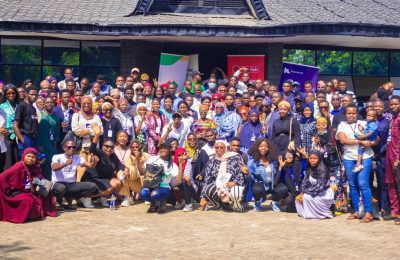Rationalization of Remuneration
In Nigeria, the gap between the earnings of the lowest paid and the highest paid Government and mercantile employees is wide enough. A daily-paid manual worker earns 1/ 44th of the salary and allowances of the best paid civil servant or his counterpart in the private sector. The gap between the latter and the average Nigerian citizen is wider still. It is arbitrarily assumed, for the purpose of taxation, that every Nigerian earns a minimum of £50 a year. It is difficult to prove and justify this assumption; especially as we have it on the authority of the FAO that the average income of a farmer or agricultural worker is £40 2s. per annum. But even granting this assumed income of £50, the gap between the income of the average Nigerian citizen and that of a top civil servant who earns, all told, about £4,000 a year, is wider still. As between the average Nigerian citizen and a self-employed Nigerian who makes as much as between £10,000 and £30,000 a year, the gap is colossal. In spite of all these, the facts of life, as we know them in Nigeria, tend to show that the gap continues to widen more relatively with every month or year that passes. It is incumbent upon us to arrest this dangerous trend, and at the same time reduce the existing intolerably wide gap.
One of the evil things we inherit from the British is a colonial salary structure. In the early stages of colonialism, and for a long time thereafter, all senior posts in Government and mercantile services were exclusively reserved for and held by Europeans. The salaries paid to these Europeans were fixed in strict relation to the salaries which obtained in Britain in identical, equivalent, and comparable posts. In this connection, it is important to bear in mind that the prevailing salaries in Britain were fixed in strict accordance with the economic and social development of that country. Over and above the basic salaries, there were a number of differential additions-like expatriation pay, children’s separate domicile allowance, outfit allowance, free house, car basic allowance, etc.,-which were designed to induce Britons and other Europeans to take the risk to go to Nigeria to work. When, however, as a result of long and sustained agitation, we eventually broke through the sound barrier, so to say, and Nigerians were appointed into the so-called senior service (formerly known as European) post, we insisted, with all the vehemence we could generate, that Nigerians, who occupied senior service posts, should receive exactly the same remunerations and allowances, other than expatriation pay, as Europeans. As a matter of fact, we insisted that, at the superscale or permanent secretary level, and in the universities, the’ expatriation pay’ should be consolidated with basic salary for both Europeans and Nigerians. We succeeded in our agitation, and, in retrospect, unfortunately so.

Whilst the surviving salary structure for the so-called senior posts is related to the economic and social circumstances of Britain, which admittedly is infinitely more developed than Nigeria and can, therefore, afford it; that for the junior posts as well as for casual labourers has no relation whatsoever to what obtains there. The reason for this is simple. Since it was not necessary at any stage to bring Britons to Nigeria to do clerical, semi skilled, and unskilled jobs, the salaries and wages at these levels had been fixed in accordance with the conditions which prevailed in the local market for labour, which was in all respects a buyer’s market. A buyer’s market because, to the early Nigerians – literate and illiterate – a regular monthly stipend, however small, was much better than, and to be preferred to, the irregular and precarious means of livelihood which obtained in conditions of primitive agriculture, made incredibly unattractive by the incessant inter-tribal and internecine wars from which the intending Nigerian employees had just been emancipated. At the same time, the British employers always made sure that just enough, and no more than just enough, was paid to these Nigerian workers, to enable them to maintain a measure of physical and mental fitness required of people whose role was to obey orders, push the pen, interpret the English language into the vernacular, draw water, hew stone, and, withal, look upon the white man as a god! As we have shown, what goes for Government services goes for the business houses as well. One important difference should, however, be noted. Because their sole object was to make as big a profit as possible, European merchants and businessmen were always more inclined and more ready to encourage Nigerian talent, whenever they found one, to exercise a reasonable degree of initiative and independent judgment in any assignment given to him, and to reward him accordingly. By contrast, however, under the colonial administration, unquestioning obedience, cringing, and fawning, on the part of Nigerian civil servants, often counted more towards personal advancement than efficiency and initiative.
ALSO READ FROM NIGERIAN TRIBUNE
The result of all these is that, when we took over from the British, we inherited, at the senior service level both in government and in business, a salary structure strictly related to the economic and social circumstances which obtained in Britain and, at the junior and daily paid worker’s level, salary and wage structures which were strictly related to the appalling conditions which obtained in Nigeria at a time when our community was just emerging from primitive barter economy and slavery, and from the ravages of inter-tribal wars.
The Nigerian merchants and middlemen, who were among the most educated and most enlightened few in our Society, lost no time in exploiting the ignorance of their people as well as the complete lack of effective communications in all parts of the country. Quite legitimately but unpatriotically and unashamedly, they constantly and deliberately manipulated and rigged the market in export farm products and imported goods, and considerably enriched themselves at the expense of the farming classes, petty traders, and low-income workers. In spite of the passage of time, these nefarious methods of old are still being practised by Nigerian merchants and middlemen on a grander though more sophisticated scale, with the consequent further widening of the gap between the rich and the poor in our community.

CONTINUES NEXT WEEK







